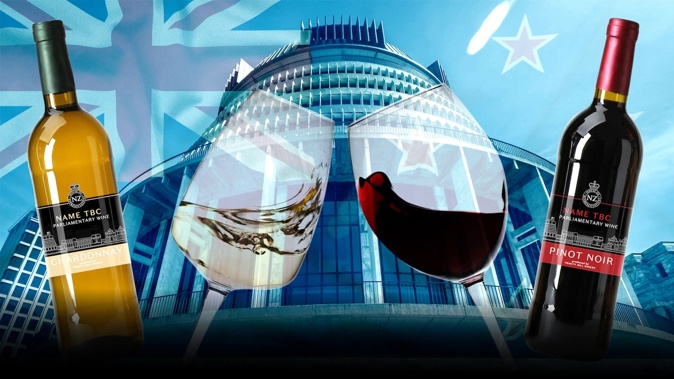
An award-winning vineyard and renowned wine writer and judge are both slamming a move from the Parliamentary Service to introduce an exclusive wine range.
In May, the Herald confirmed Parliament was looking to enter the world of wine, with plans to work with a majority Kiwi-owned winery to produce multiple signature drinks.
The plans include one “methode traditionnelle” bottle of bubbles, two to three white wines, two to three red wines, and one port.
Parliament is aiming to purchase the wine in bulk, Parliamentary Service chief executive Rafael Gonzalez-Montero has previously said.
Misha Wilkinson isn’t convinced - the owner and director of Central Otago-based winery Misha’s Vineyard, is suggesting the Parliamentary Service is doing a “huge injustice” to the wine industry with the procurement strategy.
Wilkinson said in wine industry terms, this procurement strategy is known as a buyer’s own brand, and suggested it was “not something that too many in the wine industry like”.
She compared the move to overseas supermarkets putting their own labels on wine made in New Zealand, under various home brands.
 A mock-up of the New Zealand Parliament wine labels. Photo / Parliament NZ
A mock-up of the New Zealand Parliament wine labels. Photo / Parliament NZ
“It’s hardly a strategy to showcase the best of New Zealand wine, which is what the New Zealand Parliament’s catering service, has set out to do.”
Wine critic and editor of Te Whenua wine newsletter John Saker suggested re-badging supplied bottles with a Parliament label puts the winery itself in a “secondary position”.
He is suggesting no strong brand would go near this and “have a Parliament label slapped on their own label”.
Parliament is not looking to add a rosé to the menu.
Wilkinson is surprised by the apparent snub, as rosé is deemed one of the fastest-growing wine varieties in New Zealand.
The full range, which is expected to be signed-off in August, will include one primary and one secondary wine, providing a mix of classics and more unfamiliar tastes. Parliament has suggested a chenin blanc or zinfandel could be good secondary options - the latter something Wilkinson has pointed out is only grown in a couple of small blocks around the country.
The Parliament range is also proposed to include a port - though European Union guidelines require that only wines from Portugal are allowed to be given the title of port.
“Why would Parliament of all places choose to source a politically incorrect name of a fortified wine made in a style New Zealand isn’t known for anyway?” Wilkinson asks.
Under the current plans, the signature line of wines will be presented as the house brand in Parliament’s upmarket Bellamy’s restaurant, and Pickwicks bar.
Winning wines will also be available as a gift for foreign dignitaries - a political gift seen as showing off the best New Zealand has to offer.
Saker is suggesting the idea that this could be given to world leaders does not align with the prior value-for-money request from those undertaking the procurement process.
“Can you imagine the Élysée Palace in Paris hosting dignitaries and serving anything but the best labels from Burgundy or Bordeaux they can find?” He asked.
“This is not going to attract New Zealand’s finest,” Saker warned, adding he believed it would act as a revenue stream for the Parliamentary Service, at the expense of wineries.
In a statement responding to the apparent backlash, Rafael Gonzalez-Montero said wineries throughout New Zealand were being engaged throughout this process, including briefings in which feedback has been given.
Gonzalez-Montero said value for money was important, confirming the current arrangement involved purchasing wine at standard retail prices.
“By working directly with local, homegrown wineries and having dedicated suppliers we can not only negotiate a better price at our end but ensure we are supporting local Kiwi businesses who have grown and produced this wine.
“Once the successful wines have been selected, our intention is to work with each winery on a label which takes their brand into account. The label released during the procurement process was a working copy.”
Azaria Howell is a Wellington-based multimedia reporter with an eye across the region. She joined NZME in 2022 and has a keen interest in city council decisions, public service agency reform and transport.
Take your Radio, Podcasts and Music with you









